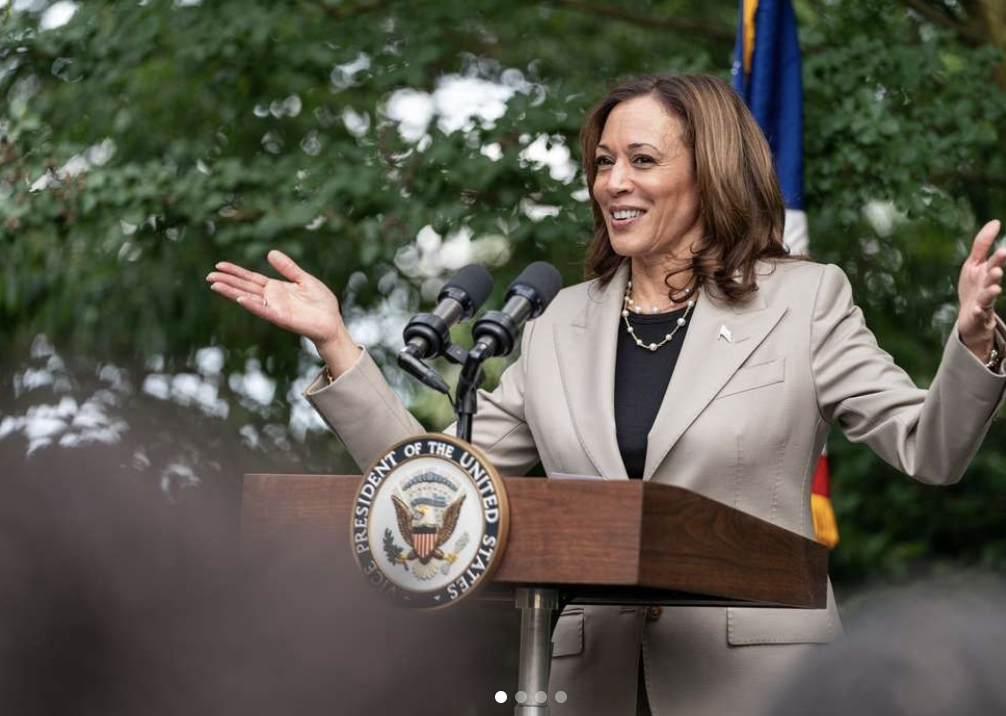Clintons back Kamala Harris, but Obama sings a different tune: What’s next? Nomination not yet in the bag

Many Democrats promptly backed Vice-President Kamala Harris to run on the Democratic ticket in the race for the White House after President Joe Biden announced he was dropping out and endorsing her. Former president Bill Clinton announced on X, formerly Twitter, he and his wife, Hillary Clinton, were wholeheartedly supporting Harris and praised Biden for rebuilding the economy battered by the COVID pandemic. But some powerful figures did not come out in support of Harris, including Barack Obama.
Obama praised Biden on X as “one of America’s most consequential presidents… a patriot of the highest order” but was markedly mum on fellow Black Kamala Harris, who will be the first African American and South Asian to run for president if she gets the Democratic ticket.
Instead, he said in a statement: “I have extraordinary confidence that the leaders of our party will be able to create a process from which an outstanding nominee emerges.”
Other holdouts
Three other top Democrats also did not pledge their support to Harris – Senate majority leader Charles Schumer, House minority speaker Hakeem Jeffries, and former Speaker of the House, Nancy Pelosi.
“In a meeting with fellow California Democrats last week, former Speaker Nancy Pelosi stressed the need for an open process to choose the party’s next nominee if President Joe Biden steps aside, in an effort to avoid the appearance of a Kamala Harris coronation,” reported Politico.
But the fact is, Harris has already won the Democratic nomination, albeit as the presumptive vice presidential, not the presidential, nominee. The Democrats organized primaries and caucuses earlier this year in which Biden secured enough votes to be the presumptive presidential nominee with Harris as his running mate, reported AP on March 12.
Kamala Harris still needs formal nomination
However, the presumptive candidate has to be formally nominated as the presidential candidate at the party’s national convention. The Democratic national convention is due to be held in Chicago from August 19 to August 22.
So Kamala Harris is by no means assured of being the Democratic candidate as yet.
She may still be challenged by opponents.
Senator Joe Manchin of West Virginia, an independent, is considering re-registering as a Democrat to challenge her.
In a first round of voting, only pledged delegates would vote; a simple majority is required to win the nomination. After that first ballot, another group of 700 delegates — sometimes known as super delegates — can vote. That group includes members of Congress, party leaders and other statesmen of the party, and aren’t pledged to any candidate.
Backing Harris
Harris will have powerful backing in a contest.
She has inherited the Biden organization and their campaign money, having been endorsed by Biden.
On July 2, the Biden campaign announced that it had $240 million cash on hand, according to CBS News.
Fundraising surge
Billionaires and major donors including Geoge Soros’ son, Alex Soros, have been quick to support her — and so have small donors. The progressive donation platform ActBlue said it had raised $45 million after Biden endorsed Harris, reports CNBC
Prominent Democrats endorsed Harris, including California Governor Gavin Newsom, Colorado Governor Jared Polis, North Carolina Governor Roy Cooper, Pennsylvania Governor Josh Shapiro, Senator Elizabeth Warren of Massachusetts, Senator Mark Kelly of Arizona, Senator Patty Murray of Washington, Representative James Clyburn of South Carolina who helped Biden win the election by delivering Black support, and the progressive Representatives Alexandria Ocasio-Cortez of New York and Pramila Jayapal of Massachusetts, and Pete Buttigieg.
Enjoying this article?
Subscribe to get more stories like this delivered to your inbox.
Some Black women worry…
However, some Black women wonder whether Harris can win the election because she is Black and a woman, reports the New York.
That could be why some Democrats are yet to endorse her; they are unsure whether she wins.
Harris trails Mr. Trump 46 per cent to 48 per cent nationally on average, says the Times.
Trump says she would be easier to defeat than Biden.
Earlier last-hour nominees and their fates
In the last 75 years, only two Democratic presidents, Harry Truman and Lyndon Baines Johnson, decided during an election year not to run again, says the Times.
In both cases, the Democrats who became the nominees — Adlai Stevenson, the governor of Illinois who replaced Truman, and Hubert Humphrey, Johnson’s vice president — lost the general election to Republicans.
Senoir Editor
